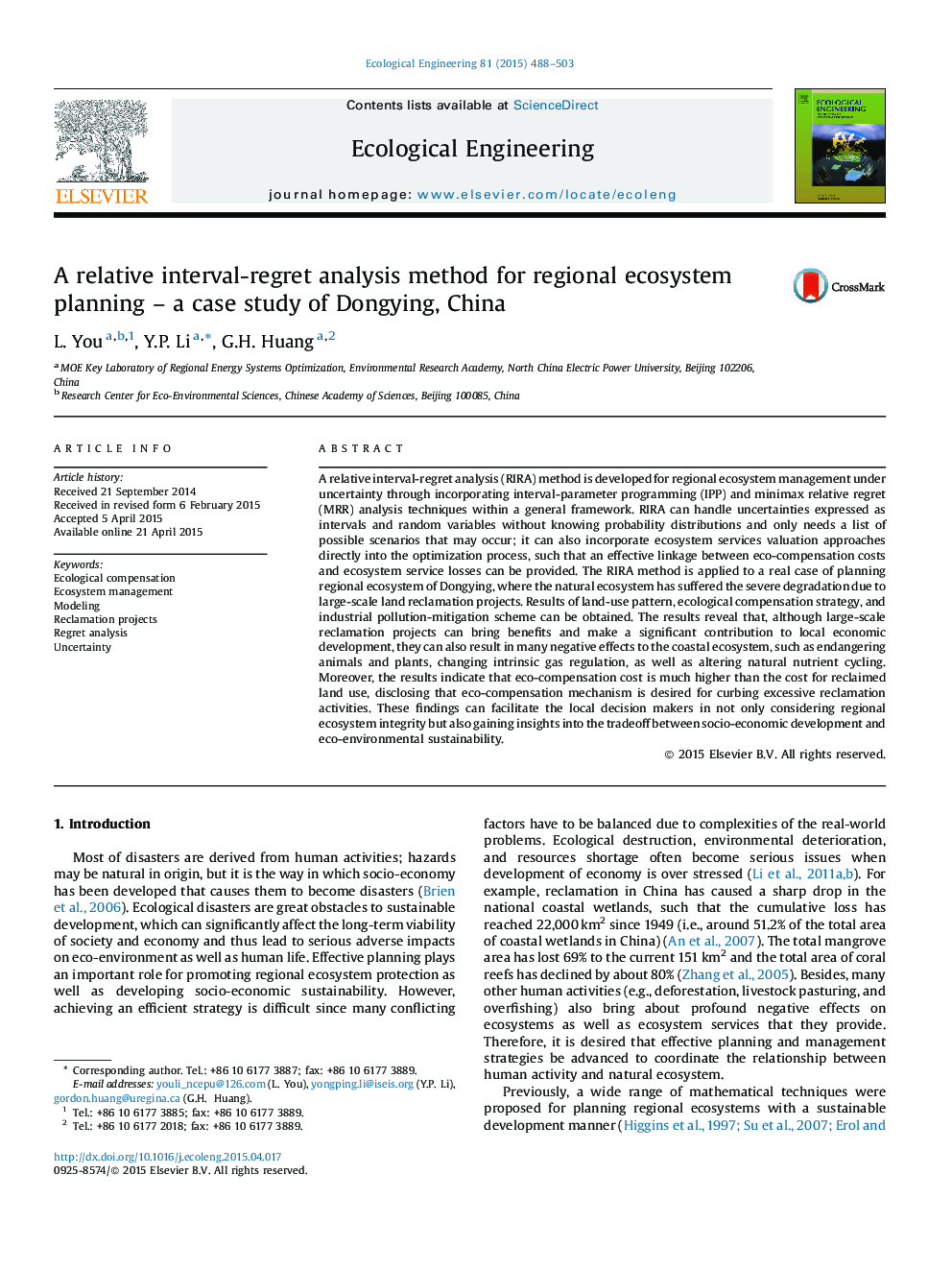| Article ID | Journal | Published Year | Pages | File Type |
|---|---|---|---|---|
| 4389107 | Ecological Engineering | 2015 | 16 Pages |
•Relative interval-regret analysis (RIRA) method is developed for ecosystem planning.•Ecosystem service losses for land reclamation are quantitatively evaluated.•RIRA is applied to a real case of planning regional ecosystem in Dongying.•Solutions for land use, ecological compensation, and pollution mitigation are generated.•Results gain insight into socio-economic development and eco-environmental sustainability.
A relative interval-regret analysis (RIRA) method is developed for regional ecosystem management under uncertainty through incorporating interval-parameter programming (IPP) and minimax relative regret (MRR) analysis techniques within a general framework. RIRA can handle uncertainties expressed as intervals and random variables without knowing probability distributions and only needs a list of possible scenarios that may occur; it can also incorporate ecosystem services valuation approaches directly into the optimization process, such that an effective linkage between eco-compensation costs and ecosystem service losses can be provided. The RIRA method is applied to a real case of planning regional ecosystem of Dongying, where the natural ecosystem has suffered the severe degradation due to large-scale land reclamation projects. Results of land-use pattern, ecological compensation strategy, and industrial pollution-mitigation scheme can be obtained. The results reveal that, although large-scale reclamation projects can bring benefits and make a significant contribution to local economic development, they can also result in many negative effects to the coastal ecosystem, such as endangering animals and plants, changing intrinsic gas regulation, as well as altering natural nutrient cycling. Moreover, the results indicate that eco-compensation cost is much higher than the cost for reclaimed land use, disclosing that eco-compensation mechanism is desired for curbing excessive reclamation activities. These findings can facilitate the local decision makers in not only considering regional ecosystem integrity but also gaining insights into the tradeoff between socio-economic development and eco-environmental sustainability.
